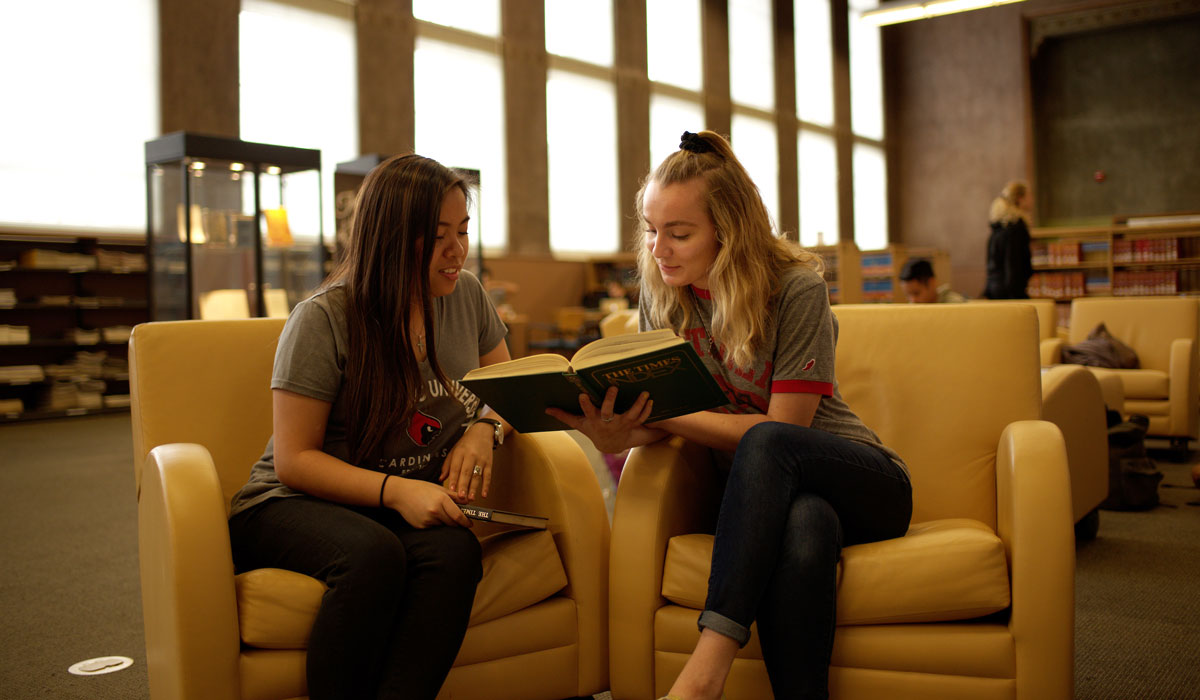The Desire to Know
All undergraduate students complete the Liberal Arts Curriculum as the core of their studies at Catholic University.
Introduction
“All human beings by nature desire to know.” These words, which Aristotle wrote in the 4th century B.C. (Metaphysics, 1.1), capture the fact that there is a deeply rooted desire in all of us to learn something about the world, to understand reality, and to find our place in it. Why? This is just who we are. To desire to know means to desire to be human, and the more we embrace the quest for understanding and truth, the more human we become.
Catholic liberal arts education, to use the words of the Apostolic Constitution on Catholic Universities Ex Corde Ecclesiae, wishes to “enable students to acquire an organic vision of reality and to develop a continuing desire for intellectual progress” (20). As such, it is dedicated not primarily to “the acquisition of useful knowledge,” but rather to “free search for the whole truth about nature, the human person, and God” (4), which corresponds with the mission of a Catholic university as a whole. Liberal arts education, however, is not opposed to professional training, it rather complements it in the pursuit of “excellence in humanistic and cultural development” and a life-long “search for truth and for meaning” (23).
Students at The Catholic University of America participate in the liberal arts curriculum as appropriate to their degree program. All students, including those in professional degree programs, take 10 foundational courses. Students in non-professional B.A. and B.S. programs complete five additional courses for a total of 15 courses, in addition to a required focus area of five courses.
The focus area for non-professional B.S. students typically involves major-specific requirements. Non-professional B.A. students complete a Liberal Studies Concentration or, alternatively, an Enduring Questions Concentration. Students may also choose to use the focus area towards completing a minor, certificate, or second major program. Students who complete a Liberal Studies or Enduring Questions Concentration will be designated as Cardinal Scholars.
Students have the ability to substitute courses in the liberal arts curriculum with AP/IB credits and college credits from high school. They may also “place out” of the language requirement.
Updated April 12, 2021
-
Enduring Questions
Learn More -
The Liberal Arts Courses
Learn More

